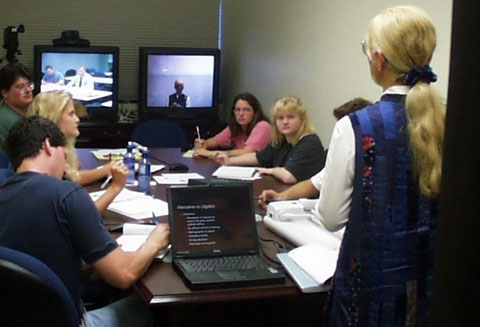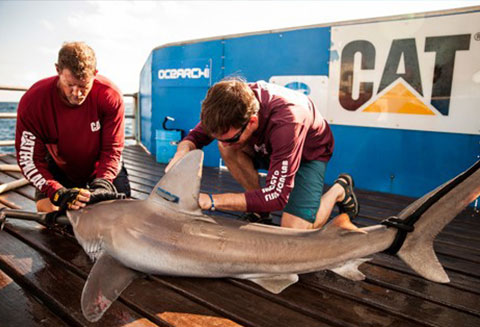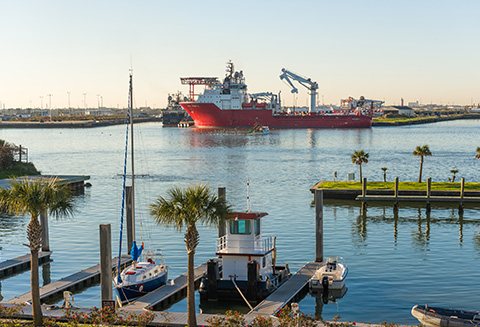- Master of Maritime Business Administration and Logistics through the Department of Maritime Business Administration
- Master of Science in Marine Biology through the Department of Marine Biology
- Master of Marine Resources Management through the Department of Marine and Coastal Environment and Science
Prospective Students
Graduate students at the Galveston Campus of Texas A&M University are not just part of the Aggie family, they are our future. Our graduate students are changing the world through their work of discovery, innovation, and entrepreneurship to become successful professionals in knowledge-based institutions, public office or private corporations.
The Marine and Coastal Management and Science (MCMS) Ph.D. program is an interdisciplinary program firmly grounded in both the social and physical sciences. The program emphasizes the impacts and opportunities from the built environment and development, rigorous training in research methods and analytical procedures, and interdisciplinary approaches to research and learning—with a focus on the coastal and marine near-shore environments, where problems at the interface of the natural and built-environment are most pronounced.
MCMS Program Details
- Who Should Apply
- Program Details
- Prerequisites
- Identify a Graduate Mentor
- Steps to Apply
In 2002, the Master of Marine Resources Management (MMRM) degree became the first graduate level degree to be approved by the Texas Higher Education Coordinating Board to be offered at the Texas A&M University at Galveston campus. The Marine Resources Management program provides students with a broad understanding of coastal and ocean policy and management. This degree program views marine natural resources management and policy development from both an ecological and policy perspective. The degree may be viewed as comparable to an MBA as an alternative degree for people working in marine, ocean, and coastal organizations. In addition, the degree program may address the needs of some public school science teachers seeking a degree outside the field of education.

MARM Program Details
- Who Should Apply
- Program Details
- Prerequisites
- Identify a Graduate Mentor (Thesis Track)
- Steps to Apply
Strengths of the Marine Biology program rely upon the international recognition and scholarly work of our graduate committee faculty. Students in the program are exposed to knowledge and research techniques related to marine ecology, coastal and oceanic habitats, marine vertebrates and invertebrates, marine fisheries, marine botany and wetlands, and coastal management and conservation. The program places an emphasis on molecular, organism, and ecosystems levels.
The program offers a doctoral degree, a master’s thesis degree, and a non-thesis master’s degree. With a sweeping scope of programs, disciplines, and departments constituting the curriculum, graduates of the Marine Biology program will be well prepared to enter higher education, private or public industry, and much more.

MARB Graduate Program Details
- Who Should Apply
- Program Details
- Prerequisites
- Steps to Apply
The curriculum of the master's degree in Maritime Business Administration and Logistics (MBAA) prepares professionals for leadership positions in maritime transport and logistics in both the public and private sectors. The program builds on the highly successful undergraduate program in Maritime Business Administration.

MBAA Program Details
- Who Should Apply
- Program Details
- Prerequisites
- Steps to Apply
Texas A&M University in College Station offers graduate work and a graduate program at the Galveston campus. The Department of Ocean Engineering offers a 30 credit, non-thesis Master of Science in Ocean Engineering degree exclusively on the Galveston Campus, which can be completed within a year, and a 30 credit Master of Engineering in Ocean Engineering at both campuses. A Master of Science with thesis is also offered on both campuses. Graduate coursework is offered through the following departments: Oceanography, Civil Engineering and Ocean Engineering. Students are admitted to these programs through the Admissions Office at the Texas A&M University main campus in College Station.